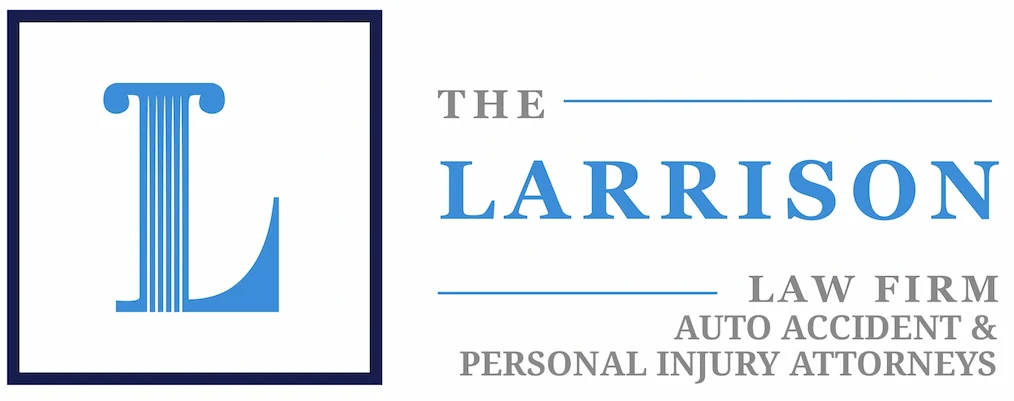Georgia is a fault-based liability state for most types of personal injury claims. If you are found partially at fault for your accident, that matters: It can impact your financial recovery. This raises an important question: Is Georgia a contributory negligence state? The short answer is “no.” Instead, Georgia is a comparative negligence state. Still, that means that fault matters. Victims can recover compensation if they are partially at fault for their accident, but only if they do not bear the majority of the blame for the incident. Within this article, our Athens car accident attorney provides a more comprehensive overview of the law in Georgia.
What is Contributory Negligence?
The Legal Information Institute explains that contributory negligence is a legal standard that bars a plaintiff from recovering damages if they are found to be even slightly at fault for their injuries. In other words, the standard holds that a plaintiff who is just 1 percent responsible for an accident may be denied any recovery from the defendant. It used to be the law in many states. However, it is now applied in only a small number of jurisdictions in the United States. While the contributory negligence standard is very much unfavorable for injured victims, there is some good news: Georgia is not a contributory negligence state. It uses a comparative negligence standard.
Georgia is a Modified Comparative Negligence State
Georgia is similar to most American states. It uses a comparative negligence standard instead of a contributory negligence standard.
Under Georgia law, personal injury claims are governed by a modified comparative negligence standard (O.C.G.A. § 51-12-33). Under this standard, an injured victim can still recover compensation even if they are partially at fault for their injuries. However, that is true only so long as their share of fault does not reach 50 percent or more. If the plaintiff is found to be 50 percent or more responsible, they are barred from recovering damages. When the fault is less than 50 percent, the total compensation is reduced in proportion to the plaintiff’s percentage of responsibility for the accident.
Understanding Comparative Negligence in Georgia Through Examples
One of the best ways to understand comparative negligence in Georgia is through examples.
Remember, it can have a very big impact on your case. Imagine that you were involved in a motor vehicle crash at an intersection in Athens. You and one other driver were in the wreck. In total, you suffered $40,000 in damages in the crash. However, a dispute quickly arises over fault for the accident. Here is how different degrees of fault could impact your financial recovery under Georgia’s modified comparative negligence statute:
- 0 Percent Fault: If you are assigned zero percent blame, you have the right to hold the at-fault party legally responsible for the full value of your damages. In other words, you could seek $40,000 in financial compensation in this hypothetical case.
- 25 Percent Fault: If you are held 25 percent at fault, you can still recover compensation, but you would be liable for one quarter of your damages ($10,000). Your settlement or verdict for the intersection crash would be reduced to $30,000.
- 60 Percent Fault: Georgia’s modified comparative negligence standard for personal injury claims prohibits recovery in cases where the victim bears the majority fault for their accident. If you are assigned 60 percent fault for a crash, your recovery would be $0.
The Bottom Line: Fault matters in Georgia. After a serious accident, even a single percentage point of fault could potentially represent thousands of dollars of financial compensation. Even though Georgia is not a contributory negligence state, you still do not want to be unfairly blamed for an accident. It could take a lot of money out of your pocket. A top-tier Athens, GA personal injury attorney can protect you from an unfair assignment of blame.
Understanding Negligence in Georgia
To properly understand how modified comparative negligence works in Georgia, you only need to have a general understanding of negligence as a legal concept. Negligence in Georgia occurs when a person fails to exercise the level of care that a reasonably prudent person would use under similar circumstances, resulting in harm to another. To prove negligence, a plaintiff must establish four elements: duty of care, breach of that duty, causation, and damages. The duty of care varies depending on the relationship between the parties and the context of the situation. Once a breach is proven, the plaintiff must show that this failure directly caused their injuries and led to actual losses. Remember, negligence is the foundation of liability in most personal injury claims.
Personal Injury Tip: Every serious accident should be comprehensively investigated by an experienced attorney. Your lawyer can gather the evidence that you need to prove negligence and establish liability.
Know the Role of Evidence in Applying Georgia’s Negligence Laws
Evidence is the foundation of any successful personal injury claim in Georgia. How negligence (and the percentage of fault) is determined after an accident in Georgia depends on exactly what the evidence shows happened. Strong evidence can help prove that another party’s actions were the primary cause of your injuries. The right evidence can help to keep your share of fault below the 50 percent threshold, ideally well below it. Along with other things, the evidence may include accident reports, dash cam, photographs, surveillance footage, medical records, body cam footage from the responding officer, and witness statements. Expert testimony can also play a role in clarifying how an accident occurred and who was responsible.
Injured Victims in Georgia Deserve the Maximum Financial Support
In Georgia, injured victims have the right to seek compensation for the full extent of their damages, including intangible losses. Following a serious accident, you have a right to bring a claim for the full and fair amount that you are due under the law. Do not rely on any insurance company to look out for your best interests after a bad accident. Our Athens personal injury lawyers can help. Along with other types of damages, you may be able to recover compensation for:
- Property losses;
- Ambulance costs;
- Emergency room care;
- Hospital bills;
- Other health care costs;
- Loss of wages;
- Loss of earning power;
- Pain and suffering;
- Mental distress; and
- Wrongful death.
The Larrison Law Firm Advocates for Injured Victims
Hurt in an accident in Georgia? You have the right to seek full and fair financial compensation for your injuries, even if you are partially at fault. However, if the defense or insurance company is trying to pin part of the blame for an accident on you, you must have strong legal representation.
At Larrison Law Firm, we put victims and families first. Our case results tell the story of what we can do for clients in Georgia. You need compensation to pay your bills, cover your damages, and support your family after an accident. Athens, GA, blends small-town charm with the energy of a bustling university city, making it a unique place to live and work. For residents injured in accidents, having a trusted local advocate in Athens can make all the difference. If you have any questions about comparative negligence, our Athens personal injury lawyer can provide answers during a free case review.
Contact Our Athens Car Accident Attorney Today for Help With a Negligence Claim
At Larrison Law Firm, our Athens car accident lawyer has the knowledge, skills, and legal experience that you can count on when it matters the most. If you have any questions about comparative negligence in Georgia, we are here as a legal resource. Call us now or contact us online for a free, no strings attached initial consultation. With a legal office in Athens, we fight hard for the rights of victims and families throughout the entire region. Our office is located in the 30601 zip code, serving clients across Athens and nearby communities.




